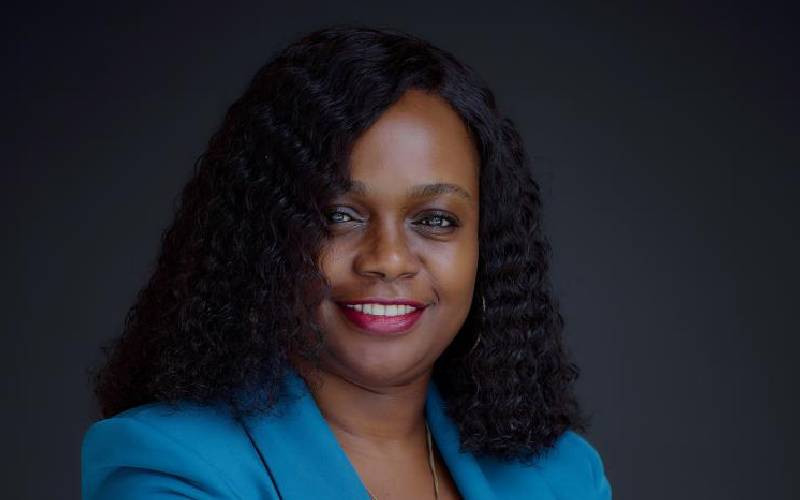Kenya’s health insurance industry is growing fast though many people are still left out. Only three in every 100 Kenyans have a private health insurance cover, less than half the global average. While low income and limited awareness are part of the problem, we must urgently address a growing challenge – rising costs.
The health industry in Kenya is struggling with soaring claims.
The medical insurance loss ratio measuring how much insurers pay out in claims compared to what they collect in premiums, has consistently breached the global benchmark of 50 to 70 per cent.
According to the Insurance Regulatory Authority (IRA), Kenya’s medical insurance loss ratio hit 78.9 per cent in 2023. More concerning, it stood at 76.5 per cent in the first half of 2024, up from 67.3 per cent in the same period the previous year.
This sustained rise is unsustainable. If the trend continues, many insurers may have no choice but to raise premiums, further pricing out lower-income households and undermining efforts to expand access to quality healthcare.
The root problem? Insurance and the overall healthcare industry still rely on outdated, manual systems and processes. Claims are processed on paper.
Key data sits in silos. And decisions are often made after the damage has already been done.
This leads to delays, high administration costs, errors, and missed opportunities to optimise products or to catch fraud, waste and abuse early. But there’s a smarter way forward. By using AI, automation, and connected data, key stakeholders in the industry can cut costs, work faster, and make healthcare more affordable.
This is already happening. With M-TIBA, a data-driven health insurance platform used by several Kenyan insurers, we’ve seen major improvements.
Real-time data has helped reduce healthcare costs by up to 15 per cent.
The speed of fraud investigation cycles is significantly faster. Claims are automated, meaning processed faster and more accurately.
Policyholders can even track their claims as they happen, building transparency and trust. Technology and AI are making a real difference in the background.
We can spot unusual billing patterns, prevent erroneous or duplication of claims, and help doctors and insurers make quicker, more informed decisions. All this means better service, fewer delays, and possibilities of unlocking more affordable coverage.
But the human side still matters. AI won’t replace people. It supports them.
Doctors, claims officers, and customer care teams can now focus on solving problems, helping patients and improving service. By sharing data, we can price better, detect waste faster, and serve Kenyans efficiently.
The writer is the commercial director at M-TIBA
Kenya’s health insurance industry is growing fast though many people are still left out. Only three in every 100 Kenyans have a private health insurance cover, less than half the global average. While low income and limited awareness are part of the problem, we must urgently address a growing challenge – rising costs.
The health industry in Kenya is struggling with soaring claims.
The medical insurance loss ratio measuring how much insurers pay out in claims compared to what they collect in premiums, has consistently breached the global benchmark of 50 to 70 per cent.
According to the Insurance Regulatory Authority (IRA), Kenya’s medical insurance loss ratio hit 78.9 per cent in 2023. More concerning, it stood at 76.5 per cent in the first half of 2024, up from 67.3 per cent in the same period the previous year.
This sustained rise is unsustainable. If the trend continues, many insurers may have no choice but to raise premiums, further pricing out lower-income households and undermining efforts to expand access to quality healthcare.
The root problem? Insurance and the overall healthcare industry still rely on outdated, manual systems and processes. Claims are processed on paper.
Key data sits in silos. And decisions are often made after the damage has already been done.
This leads to delays, high administration costs, errors, and missed opportunities to optimise products or to catch fraud, waste and abuse early. But there’s a smarter way forward. By using AI, automation, and connected data, key stakeholders in the industry can cut costs, work faster, and make healthcare more affordable.
This is already happening. With M-TIBA, a data-driven health insurance platform used by several Kenyan insurers, we’ve seen major improvements.
Real-time data has helped reduce healthcare costs by up to 15 per cent.
The speed of fraud investigation cycles is significantly faster. Claims are automated, meaning processed faster and more accurately.
Policyholders can even track their claims as they happen, building transparency and trust. Technology and AI are making a real difference in the background.
We can spot unusual billing patterns, prevent erroneous or duplication of claims, and help doctors and insurers make quicker, more informed decisions. All this means better service, fewer delays, and possibilities of unlocking more affordable coverage.
But the human side still matters. AI won’t replace people. It supports them.
Stay informed. Subscribe to our newsletter
Doctors, claims officers, and customer care teams can now focus on solving problems, helping patients and improving service. By sharing data, we can price better, detect waste faster, and serve Kenyans efficiently.
The writer is the commercial director at M-TIBA
By Irene Nafula


